Title : Dealers Insurance - When insurance wouldn't pay, parents funded cancer patient's $95,000 lifesaving treatment
link : Dealers Insurance - When insurance wouldn't pay, parents funded cancer patient's $95,000 lifesaving treatment
Dealers Insurance - When insurance wouldn't pay, parents funded cancer patient's $95,000 lifesaving treatment
Dealers Insurance - When insurance wouldn't pay, parents funded cancer patient's $95,000 lifesaving treatment
Kate Weissman sits at the edge of the patient table. Her oncologist goes over her medical records and says her most recent scans show no recurrence of cervical cancer.
"I am remarkably happy," says Dr. Whitfield Growdon, a surgical oncologist who specializes in personalized care at Massachusetts General Hospital.
Weissman perks up and claps her hands. "Two years," she says. "We made it two years."
"It's amazing," Growdon responds. "It really is."
At 33, Weissman is lean, athletic and strong -- a powerful example of cancer survival. Looking at her, it's nearly impossible to comprehend the battle she endured, whether it was her hair falling out or wondering whether she would live. She says she underwent 55 rounds of radiation, 17 rounds of chemotherapy and surgery to remove cancerous lymph nodes.
Her battle was twofold: the fight for her life and the fight with her insurance company, UnitedHealthcare. Weissman was diagnosed with stage 2B cervical cancer in October 2015. She was treated with standard chemotherapy and radiation, but by spring 2016, a biopsy confirmed that the cancer had spread to her paraaortic lymph nodes, tucked behind the bowels and lying in front of the lumbar vertebrae. Time was of the essence. After her lymph nodes were removed, her team of doctors wanted to target the cancerous area with a specialized treatment called proton beam therapy. Weissman had six highly esteemed oncologists advocating on her behalf, including five who also teach at Harvard Medical School and a sixth who was once named among America's top doctors by Newsweek. Aides in the offices of Sens. Elizabeth Warren and Ed Markey also pressed UnitedHealthcare about covering Weissman's proton treatment. Her doctors believed that proton therapy would be the most effective treatment in curing her cancer because it could pinpoint the area around her lymph nodes without causing damage to nearby organs.
Massachusetts General Hospital has one of the world's most established proton programs, dating to the 1960s. She started her original treatment at Boston's Dana-Farber Cancer Institute and moved to Massachusetts General solely for its proton expertise.
Her doctors at both facilities believed that standard radiation could damage her small intestines, leading to "life-threatening complications later, including ulceration, bleeding, and severe narrowing of the bowel that could cause bowel perforation/rupture, which can be fatal if not treated in a timely fashion," said Dr. Andrea Russo, Weissman's primary oncologist at the time. It could also damage her kidneys and cause long-term bone marrow issues.
"She was young, otherwise healthy, and had a curable disease," said Russo, an assistant professor at Harvard Medical School. "Not many patients have a second chance for a cure, but Kate did."
The nation's largest health insurance company, though, disagreed. UnitedHealthcare denied Weissman coverage for proton beam therapy after multiple appeals, saying "there is not enough medical evidence to show proton beam therapy is effective for your particular condition."
One of the insurance medical directors who twice reviewed Weissman's appeals wasn't board-certified in "gynecologic oncology," according to the American Board of Obstetrics and Gynecology, raising troubling questions about why she was involved in a cancer case.
The denials put Weissman in a terrible predicament: pay $95,000 out of pocket for what her doctors said was the best chance at a cure or continue with fully covered standard radiation, which could lead to lifelong complications.
She and her husband, Matt Eonta, were 30 at the time and didn't have the cash. Through tears, the couple called Weissman's parents and asked for help. Lauren and Cindy Weissman jumped at the chance, raiding their retirement savings and wiring the money to the hospital so she could begin proton treatment immediately.
Kate Weissman and her doctor are all smiles on this day, but "there was a time when we were not smiling," Growdon says.
In the patient room, he tells Weissman that he understands both sides of the issue -- that, as UHC said in its denials, there is little evidence to support proton beam therapy for cervical cancer. "We don't have a randomized trial, nor, Kate, are we ever going to have a randomized trial for this," he tells her.
Finding 100 patients with cervical cancer that spread to their paroaortic lymph nodes, Growdon says, and randomizing 50 of them to standard radiation and 50 to proton beam therapy "is just not plausible or feasible."
"We need to be innovative with our care as long as we fervently believe we can do it safely -- that we're not going to hurt you with it," Growdon tells her.
Proton therapy is best known for treating pediatric brain cancers, where it minimizes damage to the brain. Growdon says the same rationale applies here. Weissman's medical team laid out what it believed was an effective argument for why proton therapy would work and should be covered, he says.
"When your team recommended it," Growdon tells her, "we thought of this as being very reasonable and actually, completely the right move -- and that to not do it would probably be an error.
"We don't have data that a parachute will save you when you jump out of an airplane," he says, "but we're positive it probably works. In this case, I felt this was our parachute: It made rational sense.
"We were in a dire situation, and we had resources to be able to offer. From my perspective, it was a no-brainer."
Her recovery, Growdon tells her in the examining room, exemplifies why they sought the treatment. Reaching the two-year mark is considered a major milestone because the chance of cancer recurring drops dramatically after that point.
"My feeling is, this is a remarkable moment," Growdon says.
"I like it," Weissman responds.
American Medical Association: Denials are a growing problem
Weissman's case stands as a microcosm of growing frustrations in the medical community among treating physicians: They say that patients often don't get a fair shake from their insurance companies in the review process and that doctors' recommendations for new therapies often get shot down.
"Physicians are increasingly alarmed by reports that their patients are being denied medically necessary care despite having insurance," Dr. Barbara L. McAneny, president of the American Medical Association, told CNN. "Health insurers are making these determinations of non-coverage without any transparency, hiding behind internal, opaque policies and processes.
"It is not the insurer role to determine when covered care is needed," McAneny continued. "Those decisions must be made by patients and their physicians, who have critically important medical expertise and firsthand knowledge of the patient's unique clinical situation."
Dr. Karen Winkfield, associate director of the Office of Cancer Health Equity at Wake Forest Baptist Health, echoed that sentiment: "Much of what we do is oftentimes dictated by insurance companies. In many ways, particularly with respect to oncologic care, what you can and cannot do for a patient can be superseded by the insurance company."
"It's ridiculous that we are being relegated to groveling on our hands and knees to ask permission from someone who may or may not understand the technology," said Winkfield, who was not involved in Weissman's care.
With only about two dozen proton centers in the nation, Winkfield said, "it's really hard to do prospective clinical trials that can do comparisons, particularly in cancers that are not that common, including cervical." But, she said, there are enough clinical data to support its importance and efficacy in specific cases.
"Its principles are proven," she said of proton therapy. "Sometimes, those principles can be applied to newer technologies without having to go through the expense of a randomized controlled trial."
Russo, Weissman's oncologist, said "this was a very specific case ... in a young patient with curable cancer."
"While a randomized controlled trial does not exist, preliminary peer-reviewed published data does -- and shows that proton therapy can significantly reduce the (radiation) dose to bone marrow, bladder and small bowel" compared with the treatment UHC wanted.
UnitedHealthcare defended its denial of coverage for Weissman's proton therapy.
"Three independent radiation oncologists agreed that proton beam therapy was not safer or more effective than the proven standard of care," UHC said in a written statement to CNN. "We are pleased that Mrs. Weissman is doing well, and welcome studies that examine the use of proton beam therapy for additional types of cancer."
The insurance giant declined to provide the names of those three oncologists and would not answer CNN's questions as to whether they had specialization with proton beam therapy or with cervical cancer.
But UnitedHealthcare said that there is "no credible evidence that proton beam therapy is safer or more effective than the proven and covered treatments that are the standard of care for cervical cancer."
Pressed by CNN to explain further, UHC offered an additional statement, saying Weissman's doctors asked not just for proton therapy but also a standard radiation treatment called intensity-modulated radiation therapy, or IMRT.
"While there is no credible clinical evidence that proton beam therapy is safer or more effective than IMRT for treating cervical cancer," UHC said, "there is even less clinical evidence supporting the safety and efficacy of combining these treatments -- and our clinical policy specifically states that the combination of these two treatments is unproven."
However, Russo said that the original request was for proton therapy and that once she realized the appeals process would be an "uphill battle," she initiated standard radiation briefly because Weissman needed urgent treatment.
Being cancer-free two years later without major side effects, her doctors say, is proof of why they sought proton beam therapy.
'It was not a discussion'
A recent study by a proton therapy advocacy group found that such battles are not uncommon. Cancer patients whose doctors recommend proton therapy are denied by their insurers more than 40% of the time, and it takes more than five weeks on average to receive a final denial, according to the study by the Alliance for Proton Therapy.
Growdon says doctors simply want a "jury of our peers" when they deal with insurance companies, but he believes that was not the case for Weissman: "I think a lot of our pleas were not listened to with the way we would've hoped."
He said he was "very surprised" they couldn't persuade UnitedHealthcare to cover the treatment. He said he understands that insurance companies need to be cautious in approving expensive treatment, but he wished UnitedHealthcare had listened more to Weissman's six oncologists.
"We don't take our charge lightly. We don't want to collapse the health care system," Growdon says. "But we do want to be able to advocate for our patients and feel like our thoughts and rational ideas are being considered.
"Kate was able to pay for this, but most people cannot," he says. "It's very hard for me to think that the next person I may see won't get what I can do for them because of money."
In Weissman's case, one of the UnitedHealthcare medical directors who twice reviewed her appeals was Dr. Gwendolyn Yates, who is a licensed and board-certified obstetrician/gynecologist and a medical director with the insurance giant since March 2011, according to her Linkedin page.
The American Board of Obstetrics and Gynecology told CNN that although Yates is a board-certified ob/gyn, she "is not board certified in Gynecologic Oncology (care of women with cancers of the reproductive system)."
A closer look at Yates revealed that she co-founded a tattoo removal office in 2014 called A Change of Art Laser Tattoo Removal, according to the Maryland State Board of Physicians.
Documents from early 2015 show that Yates was found to have violated the state's medical code for "unprofessional conduct in the practice of medicine" by allowing a non-doctor to use laser equipment without a physician present. She was reprimanded by the state board of physicians and ordered to pay $1,000. According to the documents, Yates did not have hospital privileges.
The tattoo removal shop closed last year.
Why was an ob/gyn who is not certified in gynecologic oncology and who was disciplined for her tattoo removal business weighing in on specialized cancer coverage?
UnitedHealthcare declined to answer CNN's questions related to Yates, and it did not provide a statement from her for this story, despite repeated requests. Attempts to reach Yates for comment were unsuccessful.
The only thing UnitedHealthcare would say is that she is a "licensed, board-certified OB/GYN who has direct experience in the diagnosis and treatment of cervical cancer."
Yates reviewed two appeals for Weissman. In one of the denials, on May 4, 2016, Yates wrote that UnitedHealthcare had reviewed Weissman's file and "also had your case looked at by a doctor who specializes in this type of treatment."
"This doctor also spoke with your doctor. Based on the review, there is not enough medical evidence to show proton beam therapy is effective for your particular condition," Yates wrote. "You do not have coverage for treatments that are not effective. The denial is upheld."
Russo, Weissman's oncologist at that time, said she never had any communication with Yates during the appeals process. She also said the only peer-to-peer conversation she had was "with a man who was very difficult to understand over the phone."
"He read me the UHC policy, and that was the end of the conversation," Russo told CNN. "I did not have the opportunity to truly discuss the case with him.
"Patients who are depending on their insurance companies to make such an important life-altering decision on their behalf should have confidence that their decision is in the patient's best interest," Russo said.
UHC said that the three independent radiologists were board-certified and that "they spoke with Dr. Russo in the initial clinical review, as well as the first and second level appeals."
Russo said she remembers "receiving a final phone call with someone who I was told was a radiation oncologist, and he had told me the final decision was a denial."
"It was not a discussion; it was him reading me the final decision," Russo said.
The 'sleazy, underbelly moment'
Around Weissman's home are reminders of her journey. Her wig, which she named Brigitte. A pillow she embroidered with the message "I've got this."
She also kept a handwritten note from someone at UnitedHealthcare. The letter came three weeks after the company rejected her coverage and her parents paid the $95,000.
"Thank you for contacting United Health Care, it was a pleasure speaking with you!" the note says. "I am so sorry to hear about what you're going through! I hope things go well for you & wish you all the best."
Her husband took five weeks off from work during the height of Weissman's battle. He planned to do chores around the house and take her to her medical appointments.
"But really, fighting the insurance company became a full-time job," Eonta says.
He got some of the state's top politicians to advocate for his wife's coverage, not just Warren and Markey but Rep. Mike Capuano. The offices lobbied UnitedHealthcare simultaneously with her husband and doctors.
"Anything that we could think of to try to get people to put additional pressure on UHC," he says. "It didn't work. It seemed like a sleazy, kind of underbelly moment for me in terms of how this insurance company actually worked."
Sitting on a couch in their daughter's home, Lauren and Cindy Weissman express relief she's cancer free. They're proud they were able to help when she needed it most, but they say it should never have reached the point where they had to dip into their retirement savings for her care.
"There was never any question, because her health was the most important thing," her father says. "It was disappointing, of course, that the insurance company did not support all of the opinions of the doctors. Extremely disappointing. We hope this doesn't happen to anyone else."
Her mom fights back tears: "Now that she's better, if I really let myself think about that too much, it makes me crazy." She says the insurance denial created anxiety, angst and disbelief at a time when her daughter needed to be surrounded by "positive thoughts and vibes."
"Here was this young woman who had been paying all these premiums, and now she needed them the most, they stepped away from the table," Cindy Weissman says.
The parents were sent a refund of $40,000 from the hospital a few months after they paid the $95,000. No explanation was given. Her father jokes that he'd gladly take another refund of the remaining $55,000.
Weissman recently became active in Cervivor, a group that educates women about cervical cancer so they can be advocates in their communities. She says she hopes to use her experience "so I can help change the landscape for women's healthcare and the disease moving forward."
There were times, she recalls, "I'd literally be on the phone with UnitedHealthcare, fighting with them, while I was in the hospital getting chemo administered to me."
She knows that she's lucky: She had parents who sacrificed for her.
Her new fight is to speak up for those less fortunate.
source: https://edition.cnn.com/2018/08/15/health/cancer-survivor-insurance-denial-battle/index.html
This is the article Dealers Insurance - When insurance wouldn't pay, parents funded cancer patient's $95,000 lifesaving treatment
So many articles Dealers Insurance - When insurance wouldn't pay, parents funded cancer patient's $95,000 lifesaving treatment this time, hopefully it can benefit you all. OK, see you in another article.
You are now reading the article Dealers Insurance - When insurance wouldn't pay, parents funded cancer patient's $95,000 lifesaving treatment with the link address https://dealersinsurance.blogspot.com/2018/09/dealers-insurance-when-insurance.html
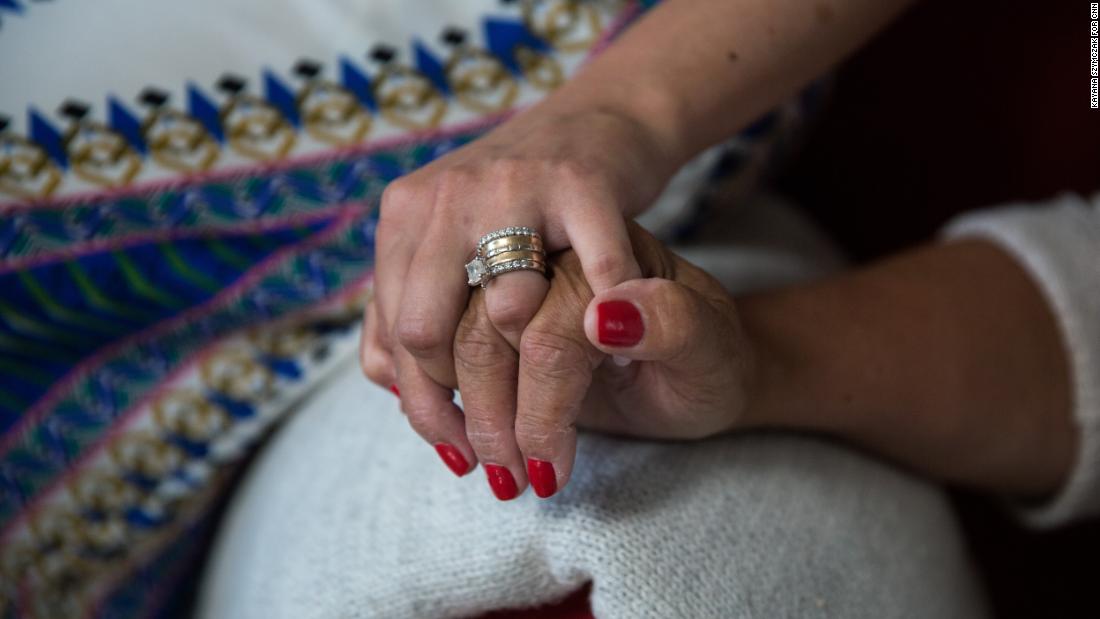
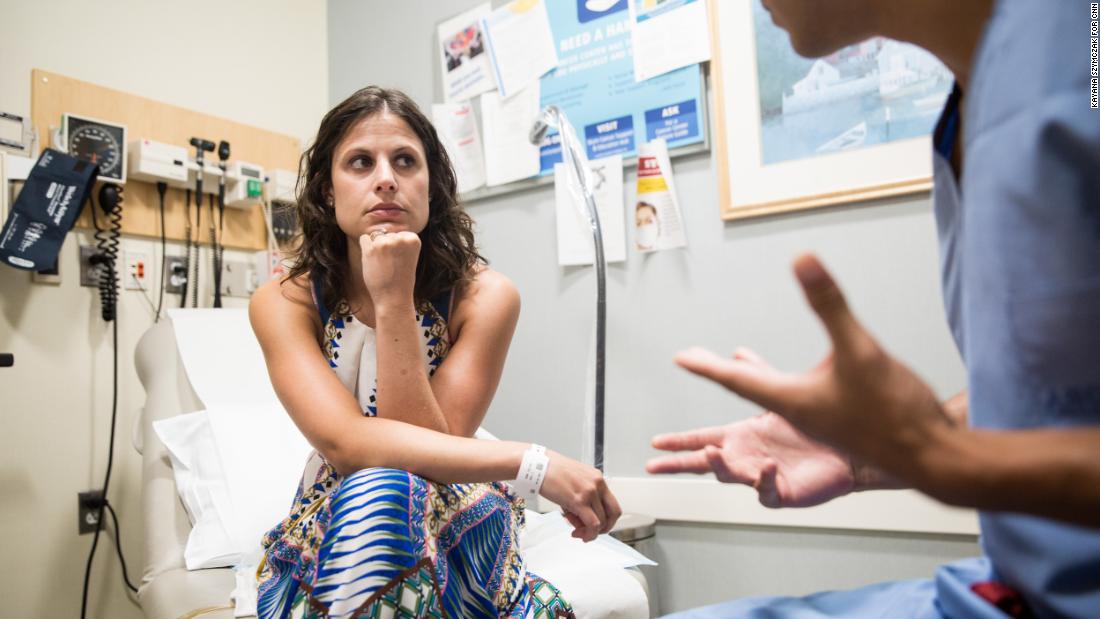
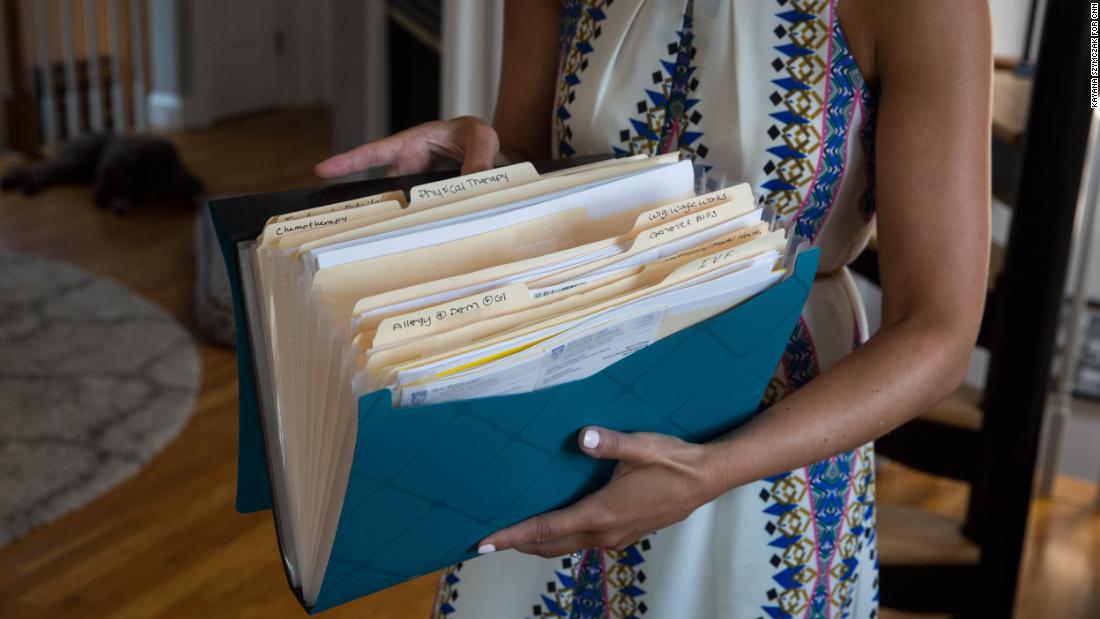
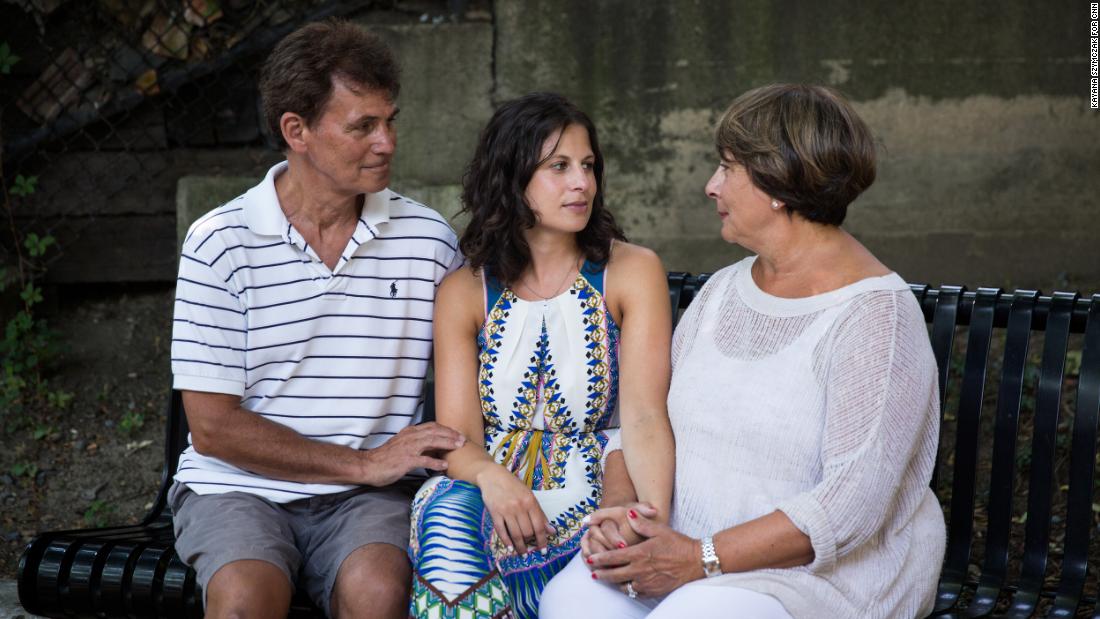
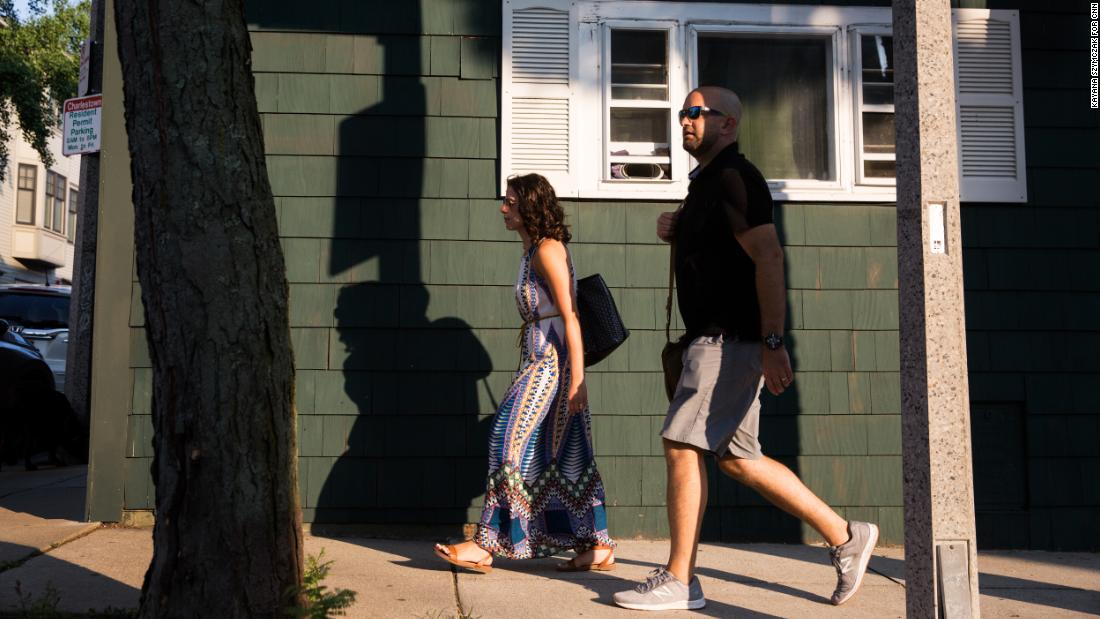
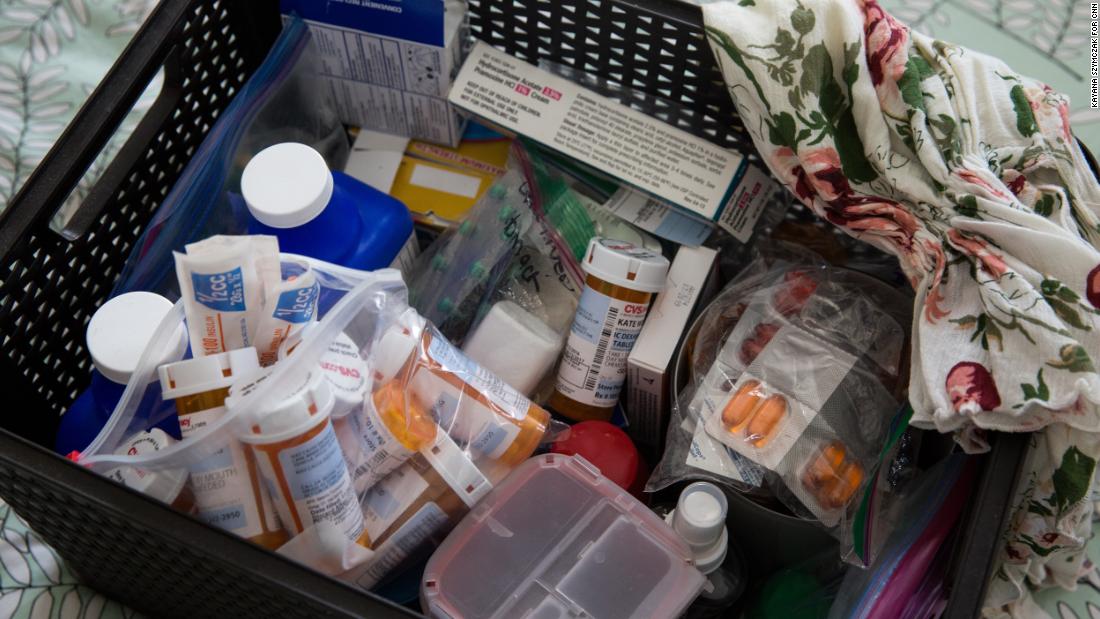
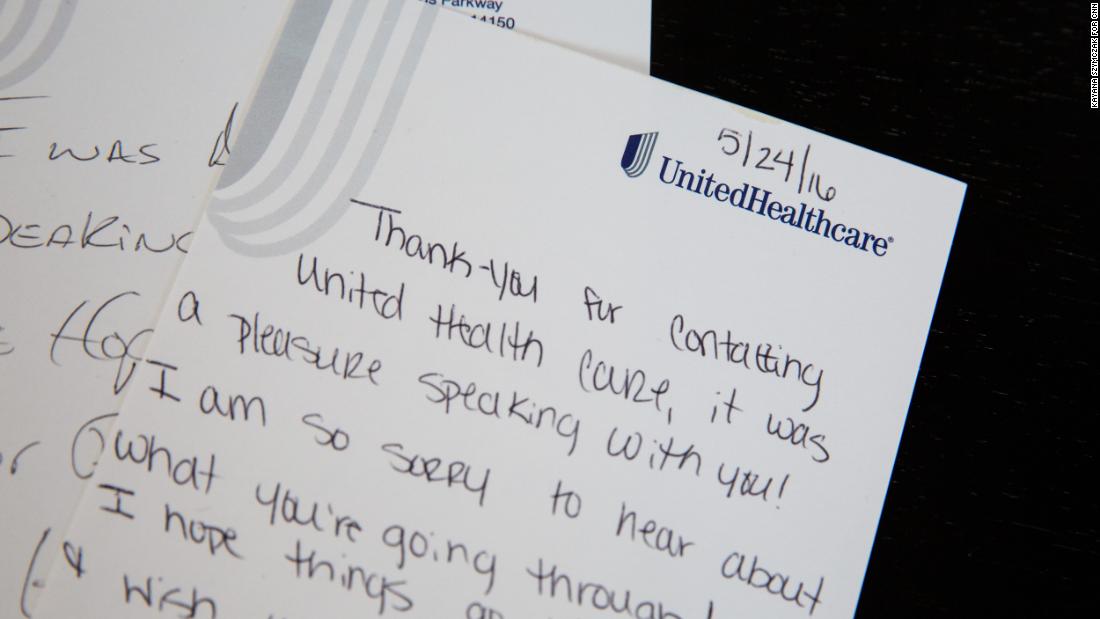
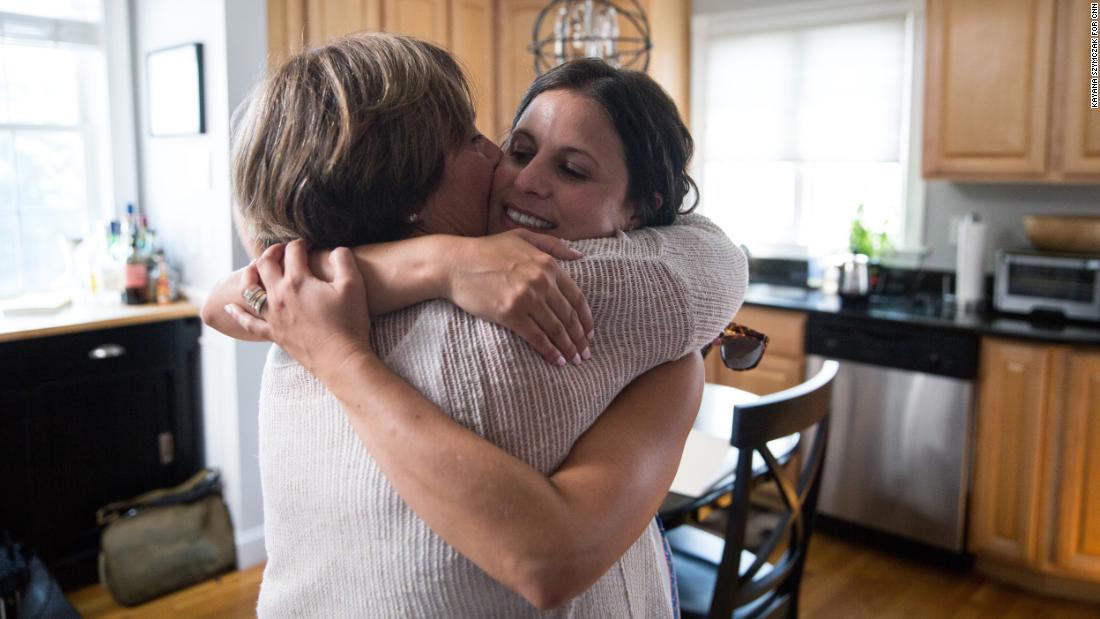


Post a Comment